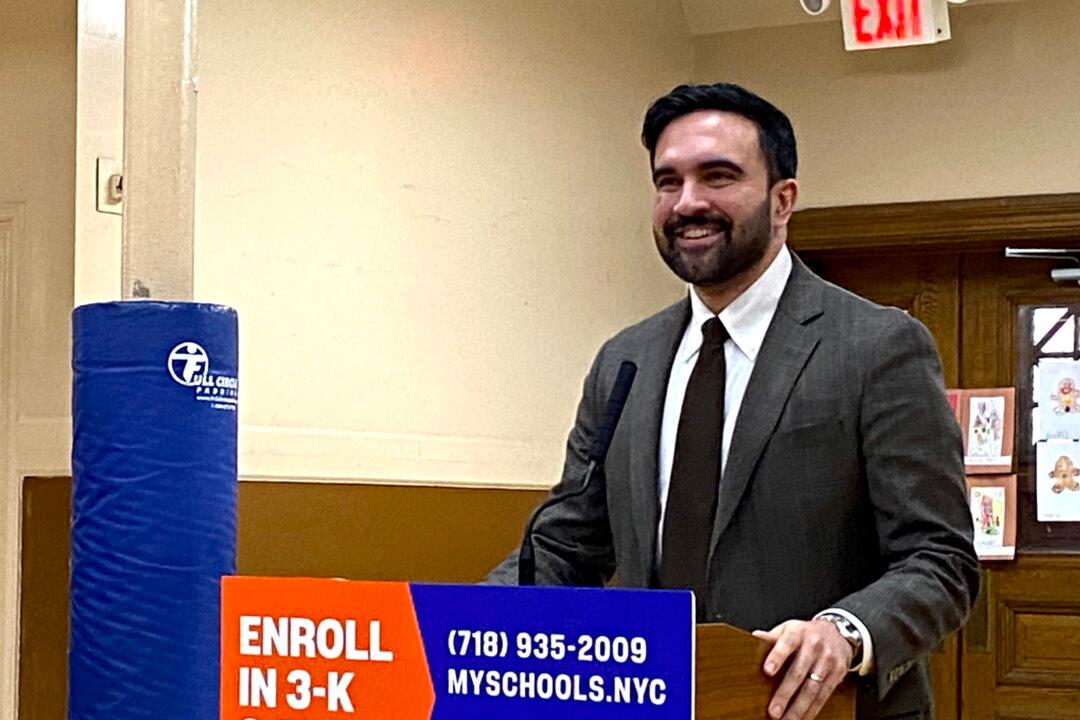NEW YORK—At his final bill signing Dec. 30 Mayor Michael Bloomberg lauded New York City-style democracy and signed bans on e-cigarette use indoors and on plastic foam containers in city eateries.
“Democracy in New York City functions better than at a federal level and in most states. I won’t comment on which states.” Bloomberg said in a jab at state politics, which often hampered his plans. “A lot of it is because of Chris Quinn who really led the City Council in the direction of a better democracy,” said the mayor of City Council Speaker Christine Quinn.
Bloomberg said he did not take the final public hearing at the signing as formality and has at past signings decided to hold off signing to reconsider legislation. On one occasion he even hesitated to sign a bill that the City Council passed at his request.
Over 12 years Bloomberg signed 883 bills into law.
E-cigarettes
The e-cigarette bill signed Monday adds e-cigarettes to the existing indoor smoking ban, which prohibits smoking in restaurants, bars, stores, businesses, and all enclosed spaces, as well as in certain outdoor spaces including city parks. Similar to the smoking ban, the ban on e-cigarettes does not apply to private residences.
The City Council acted out of concern that people using e-cigarettes in restaurants and other public places would renormalize smoking culturally. Health Commissioner Thomas Farley testified at a hearing Dec. 4 that renormalizing smoking could undermine the dramatic drop in smoking in New York since the smoke-free air act took effect in 2003.
One smoker spoke out at the signing in protest of the ban. “It’s never been about the smoke,” said Audrey Silk, the founder of Citizens Lobbying Against Smoker Harassment.
“Now we have you adding devices with no smoke to what’s called the smoke-free air act,” said Silk who said the bill’s legislative intent says nothing about exposure to the vapors of e-cigarettes.
“Good people disobey bad laws,” said Silk and lit up a cigarette while still at the microphone. A security guard promptly snatched the cigarette away. Another audience member joined her and also lit up a cigarette and headed for the door.
The ban on e-cigarette use indoors was pushed through City Council last minute with just over a month between introduction and signing. At the hearing, some warned that the council was acting too fast.
Council member Jim Gennaro, who sponsored legislation earlier this year raising the legal age to buy cigarettes to 21, sponsored the bill. Council Speaker Christine Quinn supported it.
Bloomberg responded to Silk (who had already left) saying that although some argue the e-cigarettes help people quit, they don’t. E-cigarettes “work about as well as the patch, which is to say they don’t work at all” because they prevent you from breaking the addiction to nicotine, said Bloomberg who was himself a smoker. The only way to quit, said Bloomberg, is to just decide to do it.
Plastic Foam
The plastic foam ban also faced strong opposition, with the chemical lobby spending more than a million dollars to fight the bill.
Shortly before the bill’s introduction, the American Chemistry Council established the Restaurant Action Alliance NYC. Alliance representatives then started approaching thousands of restaurants without identifying the relationship between the chemical lobby and the alliance. Hundreds of restaurants then signed letters opposing the foam ban.
The law requires the sanitation commissioner to determine if foam is recyclable by Jan. 1, 2015. If deemed not recyclable by the commissioner, plastic foam will be banned from all food service establishments citywide on July 1, 2015.



